|
There is a lot of hype right now about grain free foods and heart disease in pets. We reached out to Ann, our nutrition and internal medicine small animal VTS author, for her prospective and she gave us the low down. 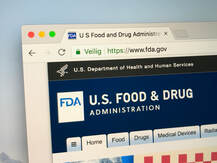 In July 2018, the Food and Drug Administration (FDA) issued a bulletin regarding a potential connection between diet and cases of canine Dilated Cardiomyopathy (DCM). Veterinary cardiologists had alerted the FDA of an increase in cases of DCM in breeds not typically genetically prone to this condition (1, 2). Dilated cardiomyopathy has been genetically linked to a number of breeds of dogs including Great Danes, Boxers, Newfoundland’s, Irish Wolfhounds, St. Bernard’s, and Doberman pinschers. Cardiologists were seeing an increase in non-typically breeds including mix-breed dogs and smaller dogs. (1) Veterinary cardiologists were recently surveyed about cases of possible diet-associated DCM in dogs examined in the past 2 years. Information was provided for over 240 dogs. For dogs in which the breed was specified:
The specific ingredients implicated include peas, lentils, other legume seeds or potatoes as main ingredients. This means they will be listed at the first 3-4 ingredients on an ingredient panel for the food. (1) These ingredients, in the higher proportions, tend to be found in foods labeled as ‘grain-free’. When talking to clients, veterinarians have found that owners say that ingredient lists are the most important factor in selecting a food to feed their dogs. (3) With the exception of marketing, ingredient lists are useless in determining the quality of a food. Nutritionists are fond of saying that the body looks at nutrients not ingredients when evaluating a food, and as long as all the required nutrients are available, the body is good with most any source. Furthermore, the terms “holistic”, “premium”, and “human grade” and unregulated and meaningless when looking at the quality of a food. (5) So how do you evaluate the quality of a food? Like the ingredient lists, the popular food rating sites are also generally useless, as they tend to be based on opinion, not science or a criterion that ensures quality. Your veterinary team should always be your first source of information, and no, none of us are getting kickbacks from any companies for our recommendations. Our goal is to have healthy, happy patients, that’s it! (3) Dilated Cardiomyopathy on the RiseOver the past few years, veterinarians have been seeing increased cases of DCM in dogs that appear to be related to their diets, though the extent of this is unknown. Cardiologists estimate that these diet-associated DCM cases represent ~ 16% of the total cases that they are seeing. (2) They have been able to narrow these down to two different types; dogs with taurine deficient DCM, and those with DCM associated with separate, but as yet unknown dietary factors. Taurine is an essential amino acid for cats, but is not typically seen as an essential amino acid is dogs. It is typically converted from two other essential amino acids, methionine and cystine. In theory, if the amounts of methionine and cystine are sufficient in a diet, then no deficiency should occur. The reasons for taurine deficiency are not completely understood, but could be related to:
What is Dilated Cardiomyopathy?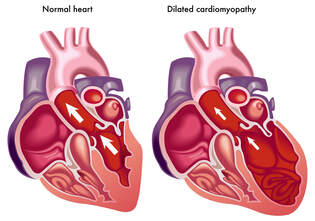 Normal heart vs. Dilated Cardiomyopathy Normal heart vs. Dilated Cardiomyopathy Dilated cardiomyopathy is a disease of the heart muscle causing the heart to not contract as well as it should, and subsequently causing the heart to enlarge resulting in heart failure. DCM can also cause abnormal heart rhythms, congestive heart failure, and sudden death. (4) Signs that owners may notice include decreased energy or exercise intolerance, coughing, difficulty breathing, and episodes of collapse. (1) Diagnosis of DCM is only made after an echocardiogram (an ultrasound of the heart) done by a veterinary cardiologist. Your veterinarian may be able to see enlargement of the heart on routine radiographs (xrays), and will be able to listen to the heart and lungs for any fluid accumulation and rhythm abnormalities. If any changes are seen or heard, a referral to a veterinary cardiologist is recommended for a definitive diagnosis. Diet ConcernMost of the affected dogs being seen by veterinary cardiologists who appear to have diet-associated DCM have been fed boutique, grain-free or exotic ingredient diets. (4) The actual percentage of affected dogs is unknown, as many pass-away at home or at their veterinarians without confirmation of a diagnosis. (2, 4) The true association of these types of diets, and the implicated ingredients has not been proven to exist, and research is ongoing to determine what process is causing these changes. Many people underestimate the true complexity of pet food manufacturing. It is much more complex than throwing together a number of good sounding ingredients, and slapping a label on the food. (2) For many ingredients the effects of processing (or not processing) must be considered, along with the nutrient bioavailability, and effects of other ingredients on the food, including nutrient binding and nutrient interactions. (2) Recommendations for Diet Selection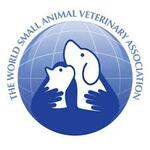 The World Small Animal Veterinary Association (WSAVA) has provided a list of criteria to use when selecting a new food for your dog. To date, none of the foods that conform to these guidelines have been implicated in any cases of diet-associated DCM. These are the questions to ask of your pet food manufacturer:
What Does this Leave Me to Feed??There are only three companies currently who are actively doing feeding trials on their products, and meet all the rest of the WSAVA guidelines. Now to many of you who have bought into the marketing around pet foods, these companies are familiar and unfortunately much maligned. They are:
ConclusionWhen making decisions on what to feed your dog, please look at the science and the numbers, and not be taken in by the marketing and hype. We understand no one makes an active decision that will harm their dog, but by allowing your decisions to be determined by marketing instead of science, that is exactly what you are doing. Chose to follow the science, and keep your dog from being added to the ever-growing number of diet-associated DCM dogs. References:
Additional Reading:https:/taurinedcm.org We hope this article by Ann helps shed some light on a very sensitive subject. We all want to do what is best for our pets and nutrition is one of the biggest things we do on a daily basis that affects their health. As a brilliant technician, Kara Burns, once said: "Every Pet, Every Time!" PS: Here's all of Kara's alphabet soup: MS, M.Ed., LVT, VTS (Nutrition), VTS-H (Internal Medicine, Dentistry) Let us know what you think in the comments below! ~ Yvonne and Ashley AuthorAnn Wortinger BIS, LVT, VTS (ECC, SAIM, Nutrition), FFCP
Comments
|

Ready to Work Together?
Thank you!You have successfully joined our subscriber list. This website is NOT a substitute for veterinary care with a veterinarian. We recommend you follow the advice and treatment plan as prescribed by your veterinarian, and only after discussing anything found on this website with your veterinarian, with their approval, implementing advice found here.
Most of the information on this site is free for you to read, watch or listen to, but Internal Medicine for Pet Parents is also a business. So please expect hyperlinks to be affiliate links in many cases, where we receive a small percentage of sales if you wish to purchase. We only recommend tools, books and services that we use, or people we know personally. Integrity and authenticity continue to be of the highest importance to us. Read the privacy policy here. We hope you find the site useful! Thanks – Yvonne and Ashley Check us out on Facebook!
Categories
All
Archives
October 2019
|
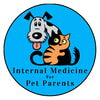
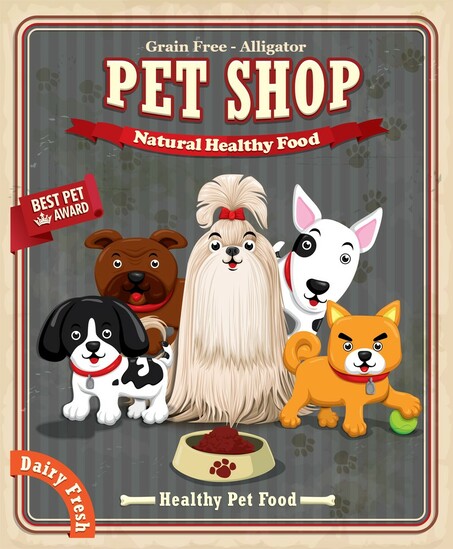
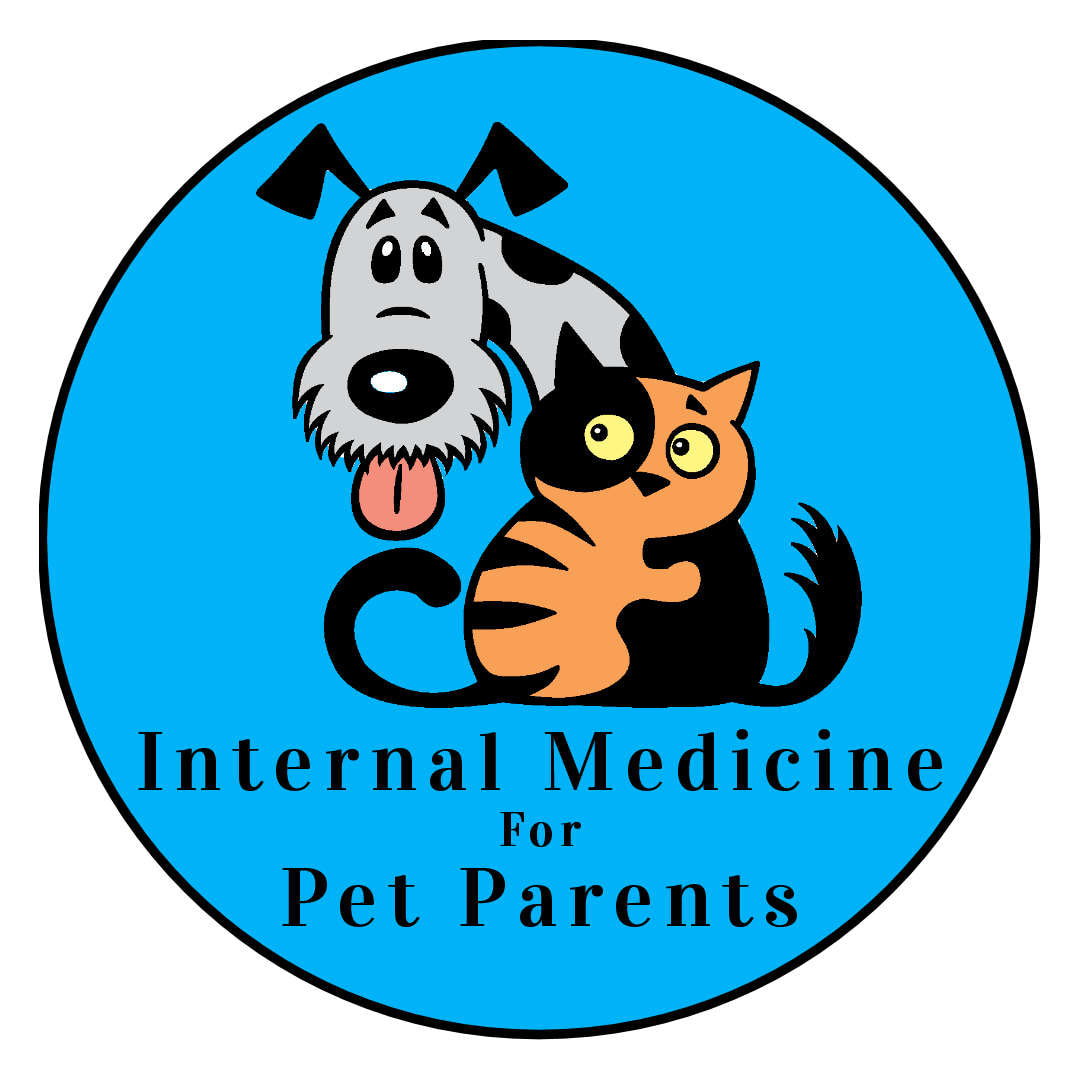
 RSS Feed
RSS Feed